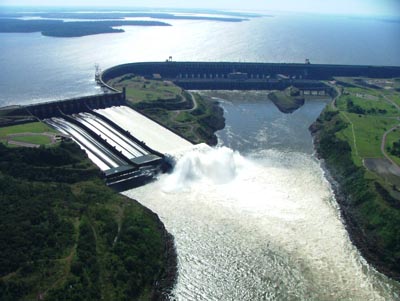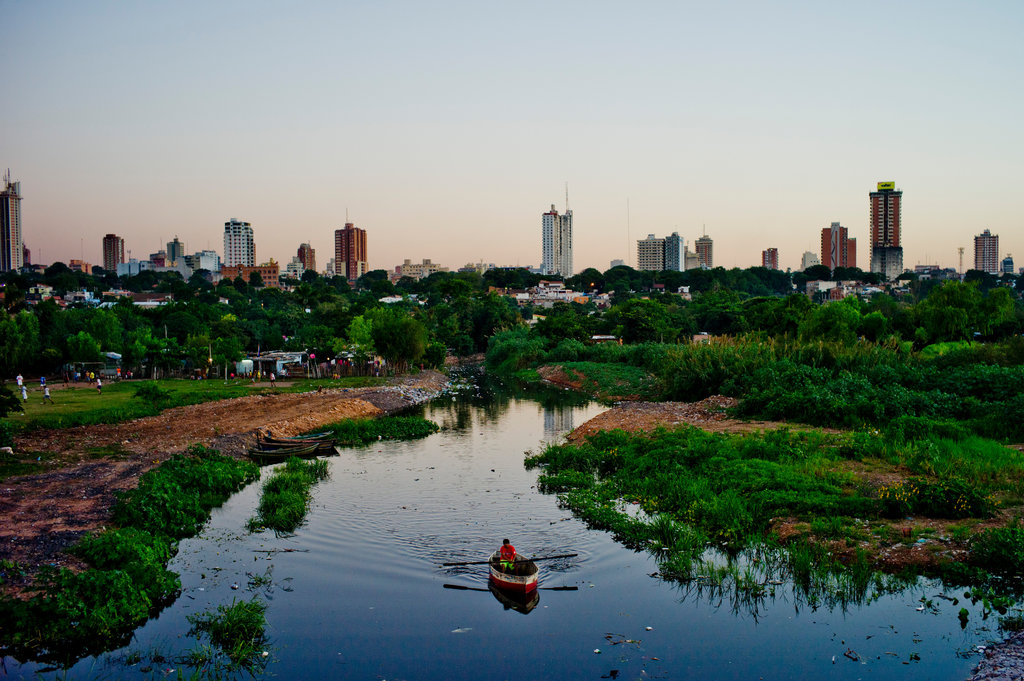HYDROCLIMATOLOGY
Hydroclimatology is responsible for characterizing the average and extreme regimes of climatic variables linked to the water cycle, from the detail scale to the global scale.
The hydroclimatology can deal with the generation of intensity-duration-frequency curves for a rain gauge, up to the characterization of the spatio-temporal evapotranspiration patterns for a whole river basin.
The main environmental variables studied by hydroclimatology are precipitation, temperature, soil moisture, evapotranspiration and fluvial discharge, both liquid and sediment. The characterization of these variables is usually part of a deeper and more complex hydrological analysis.
At IHCantabria, we are commited with incorporating the most current and advanced methods into the characterization of environmental variables, providing solutions with different degrees of complexity that they adapt to the availability of information, budget and time to respond to the needs formulated, always considering the most relevant hydrological dynamics.
Methodology
We project the effects of climate change on different hydrological variables. Based on global Intergovernmental Panel on Climate Change (IPCC) projections, and by combining statistical and dynamic downscaling techniques, we transform these atmospheric projections into hydrological projections that can be used to feed the impact models. In addition to the direct effects that changes in hydroclimatological dynamics can induce, we consider the effects that changes in climate can have on plant cover and land uses, since these indirect changes can have more of an effect on hydrological dynamics than direct atmospheric changes.
For the specific cases we use the most advanced statistical techniques to characterize the atmospheric dynamics, such as spatio-temporal models based on the Neyman-Scott model to represent the spatial patterns of precipitation over the watershed, and different types of regression and automatic learning techniques to relate various spatial descriptors of the atmosphere (synoptic maps) to the statistics of the hydroclimatic variables to be modeled.
Depending on the objectives of the specific study, we apply everything from rain runoff transfer models to complete hydrological models based on physical equations in order to capture the behavior of the watershed studied and derive the response variables, such as soil moisture or evapotranspiration.
In national and regional studies, the lack of homogeneity and stationarity change the approach, and specific models are constructed to capture the existing variability and generate synthetic scenarios that allow analyzing the objectives of the project.
Hydrological modeling also requires the use of other models, such as the VIC (Variable Infiltration Capacity) model, to capture the hydrological dynamics in larger cells, where each cell’s internal variability must be considered so as to correctly reproduce the processes.
AREAS OF EXPERTISE
AREAS OF EXPERTISE
Calibration of synthetic models for the reproduction of observed climates and generation of alternative scenarios
Dynamic downscaling of atmospheric variables, and dynamics of hydrological variables
Use of hydrological modeling at different scales for the analysis of basins or sets of basins
Analysis of vulnerability to climate change of hydrological dynamics, especially for the analysis of impacts of drought, flood and hydroelectric production
SIGNIFICANT PROJECTS
SIGNIFICANT PROJECTS
Analysis of vulnerability to climate change of prioritized hydroelectric power plants in Ecuador. Phases I and II.
Analysis of vulnerability to climate change of prioritized hydroelectric power plants in Ecuador. Phases I and II.
Analysis of the vulnerability to climate change of hydroelectric production in the Andean countries.
Analysis of the vulnerability to climate change of hydroelectric production in the Andean countries.
LET’S TALK
Would you like to know how we can help you?
Send me a message. I will get back to you as soon as possible
LET’S TALK
Would you like to know how we can help you?
Send me a message. I will get back to you as soon as possible

MANUEL DEL JESUS
Researcher || Expert in Hydroclimatology
We advise you that your personal data will be processed by FUNDACIÓN INSTITUTO HIDRÁULICA AMBIENTAL DE CANTABRIA, in order to manage your request and maintain professional and commercial relations with you. Your data will not be transferred to third parties. This data treatment is necessary to attend your request. Your data will be kept until you unsubscribe from the service and/or after a reasonable time has passed since we attended to your request. You can exercise your rights of access, rectification, cancellation, opposition, portability and limitation of the processing of your data by contacting the FUNDACIÓN INSTITUTO HIDRÁULICA AMBIENTAL DE CANTABRIA, PCTCAN C/ISABEL TORRES, 15, 39011 SANTANDER (CANTABRIA), or rgpdihcantabria@unican.es with a copy of your ID card duly accrediting your identity. In any situation, you have the right to file a complaint with the Spanish Data Protection Agency (AEPD)





